Push Down Bad Links from Search Engine Results
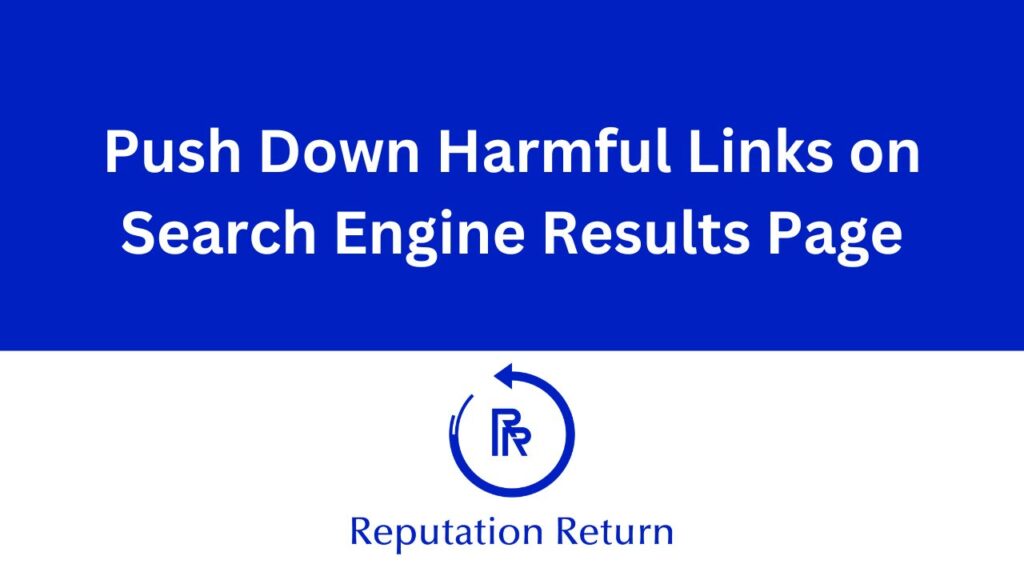
Removing or pushing down hurtful news links resulting from slander or defamation involves legal actions, SEO strategies, and strategic content creation. Start by contacting the websites hosting defamatory content and, if needed, pursue legal action to obtain a court order for removal. Complement these efforts with SEO strategies by creating and promoting positive content, such as blog posts and press releases, to overshadow negative information. Engage in proactive public relations to generate favorable content. ReputationReturn.com specializes in these areas, offering services to identify and mitigate defamatory content, optimize positive content, and monitor online presence to maintain a favorable digital footprint. Combining these methods effectively manages and mitigates the impact of slander or defamation on online reputation.
Removing Hurtful Content from Google results Page After Legal Issues
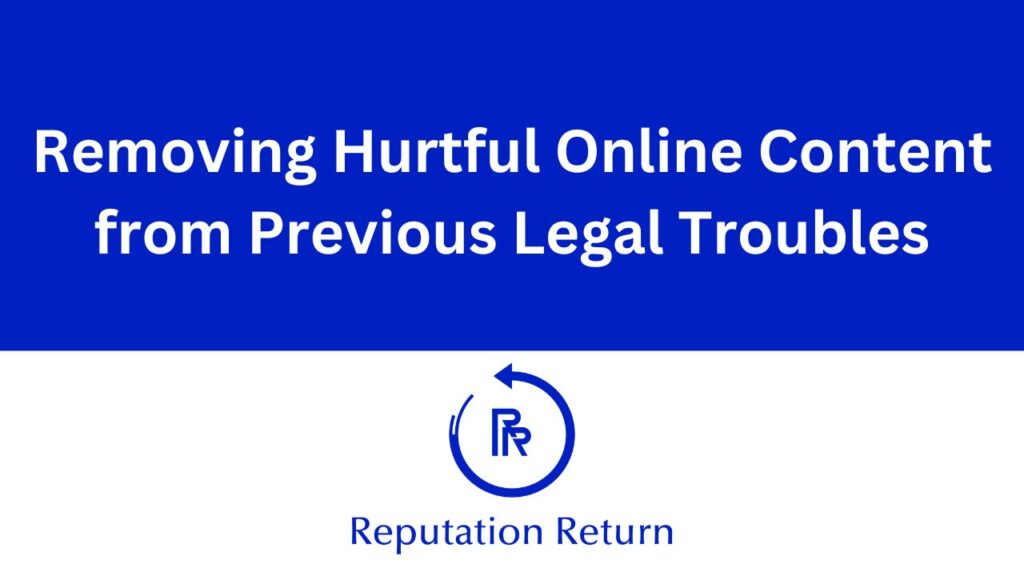
Removing hurtful online content from previous legal troubles involves a strategic approach to online reputation management. One effective solution is reaching out to website administrators and search engines to request the removal of defamatory content, especially if it violates their policies. Another approach is creating and promoting positive content to push negative information lower in search engine results. For instance, publishing blog posts, press releases, and customer testimonials can help overshadow harmful content.
A Realtor’s Reputation Crisis: A Cautionary Tale
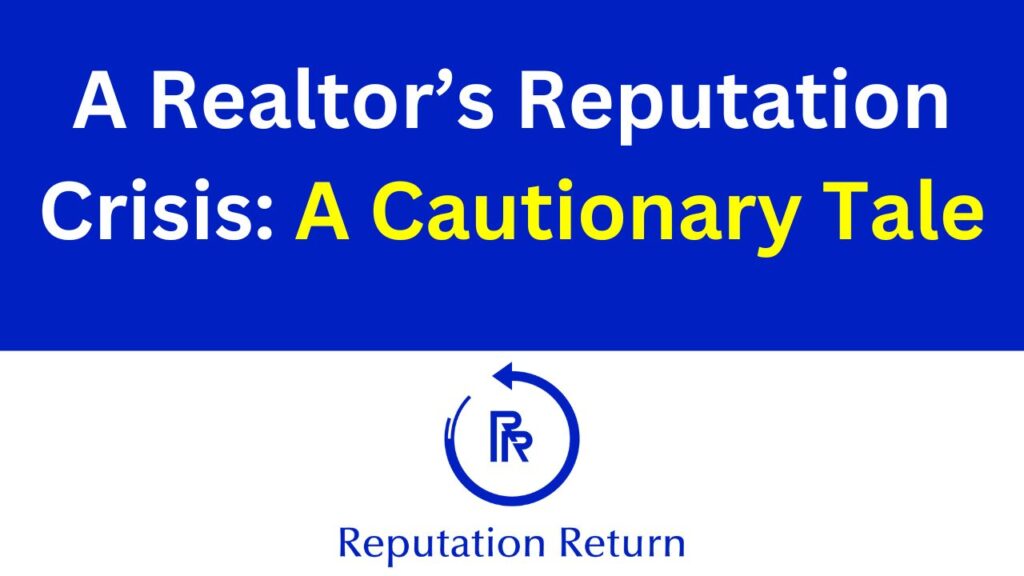
Sarah, a successful realtor, faced a reputation crisis after a high-profile client discovered major issues in a home she sold. This client’s social media complaints triggered a flood of negative reviews and accusations of ethical breaches, including discrimination and misrepresentation of property values. Overwhelmed, Sarah’s communication faltered, and she missed appointments and responded unprofessionally. A market downturn worsened her situation as clients felt misled into overpaying for properties. Personal scandals from old social media posts further damaged her credibility. In response, Sarah issued a public apology, hired a PR firm, and sought additional training to rebuild trust and restore her business, highlighting the importance of maintaining professional and ethical standards in real estate.
Public Figure Reputation Management Strategies

Public figures must proactively manage their online reputation to maintain a positive public image. Effective strategies include search engine optimization (SEO) by publishing high-quality content and building reputable backlinks. Maintaining an active social media presence and promptly addressing negative comments helps control the narrative. Managing profiles on review sites and monitoring legal mentions ensures accurate representation. Utilizing media relations and having a crisis management plan in place are crucial. Regularly monitoring search engine results and using reputation management tools like Google Alerts and BrandYourself provides insights for proactive responses. Neglecting these practices can lead to negative content dominating search results, lost opportunities, diminished trust, and increased emotional stress, emphasizing the necessity of diligent reputation management.
Nasty Divorce with Slander and Defamation

Nasty divorces often lead to online slander as ex-spouses, driven by anger and resentment, use social media and digital platforms to air grievances. One spouse might post inflammatory remarks or private details to damage the other’s reputation or seek sympathy. This can involve false accusations, the spread of personal information, or outright character assassination. Such actions not only deepen emotional distress but also affect one’s professional and personal life. Reputation Return offers specialized services to combat these issues, focusing on identifying and removing defamatory content. Their comprehensive approach helps individuals restore their online image and safeguard their reputation from the adverse effects of online slander and defamation.
Child Custody Hearings and Related Online Slander and Defamation
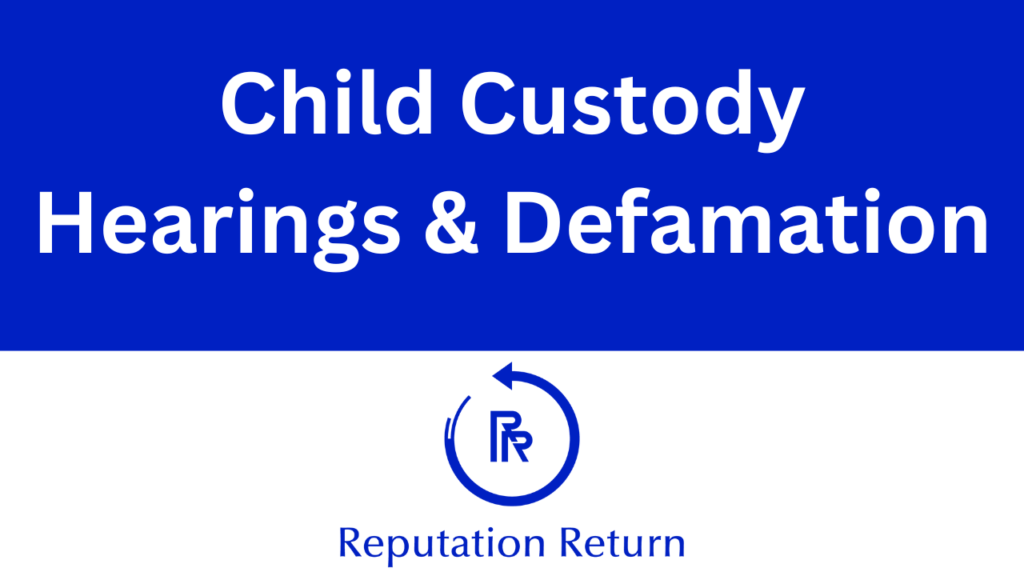
ChatGPT
Child custody hearings can become highly contentious, leading parents to resort to online slander and defamation to gain an advantage. These actions involve posting false accusations or negative information about the other parent on social media, severely damaging their reputation and personal life. ReputationReturn, an online reputation management firm, assists parents in restoring their dignity and peace of mind after such attacks. They remove or bury negative content, promote positive information, and monitor online activity to prevent future incidents. This support allows parents to focus on resolving custody issues while experts handle the reputation damage, ensuring a healthier environment for the family.
Child Custody Battle and Online Defamation
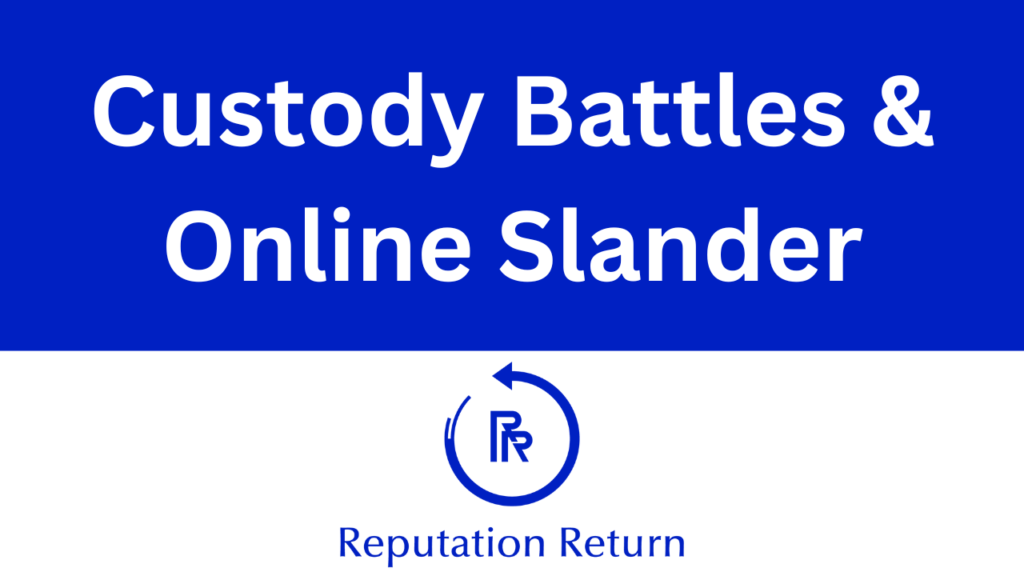
During custody battles, parents often defame each other to gain an advantage, resulting in harmful consequences. Accusations of neglect, abuse, or substance abuse are common tactics used to tarnish the other parent’s reputation. This defamation can occur through social media, online forums, or even in legal documents submitted to the court. Such actions not only impact the individuals involved but can also affect the children caught in the crossfire. To counteract these damaging claims, parents can work with a reputation management company like ReputationReturn, which specializes in rebuilding online reputations after such vicious attacks, ensuring that false information is minimized and positive, truthful content is highlighted.
First Impressions: The Importance of Online Reputation Management for Google Searches

Google searches are often the first impression people get of you or your business, making online reputation management (ORM) essential. Positive search results build trust and credibility, while negative content can harm your reputation. Implementing an ORM plan involves optimizing content, monitoring online mentions, engaging with feedback, and creating positive content to push down negative information. For example, responding to negative reviews professionally and promoting positive testimonials can enhance your image. Actively managing your online presence ensures that Google searches present a favorable view, crucial for maintaining credibility and seizing new opportunities.
Technical Aspects of SEO in Online Reputation Management

Search engine optimization (SEO) is vital in online reputation management (ORM) by promoting positive content and reducing the visibility of negative information. Key techniques include keyword optimization, content creation, and building high-quality backlinks to boost rankings. On-page SEO ensures individual web pages are optimized for better search results. Continuous monitoring and local SEO for businesses help maintain a positive online presence. By leveraging these strategies, individuals and businesses can effectively manage their online reputation, ensuring favorable content appears prominently in search results, thereby controlling the public narrative and perception.
How a Damaged Reputation Can Impact Your Business
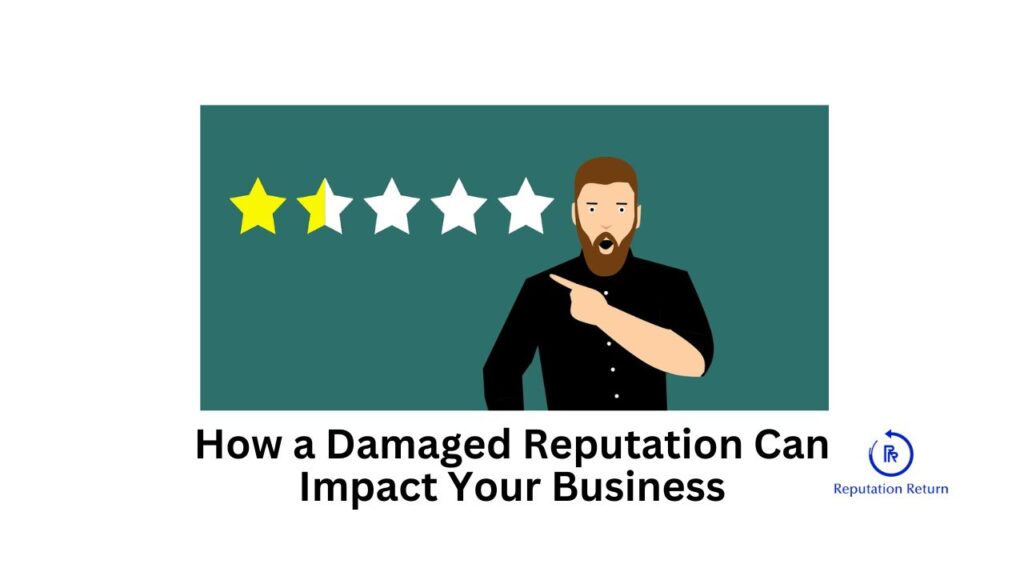
Reputation damage control is essential for businesses facing negative publicity or crises. It involves immediate and strategic actions to mitigate the impact of harmful events on the company’s image. Key steps include promptly addressing the issue with transparency and accountability, engaging with affected stakeholders, and providing clear, honest communication. Additionally, businesses should monitor online and media channels to manage the narrative and correct misinformation. Implementing a robust reputation management plan, including crisis response strategies and continuous positive content creation, helps rebuild trust and credibility. Partnering with reputation management experts can ensure effective damage control and long-term reputation recovery.
